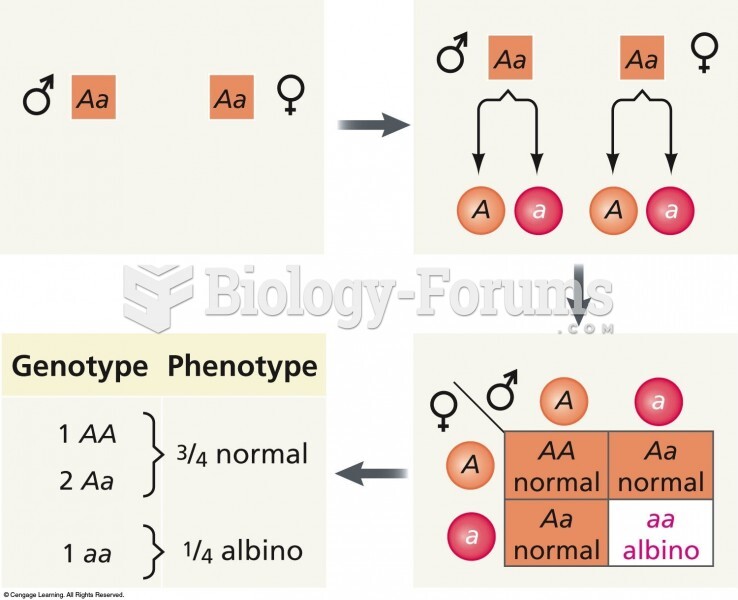|
|
|
Bisphosphonates were first developed in the nineteenth century. They were first investigated for use in disorders of bone metabolism in the 1960s. They are now used clinically for the treatment of osteoporosis, Paget's disease, bone metastasis, multiple myeloma, and other conditions that feature bone fragility.
The strongest synthetic topical retinoid drug available, tazarotene, is used to treat sun-damaged skin, acne, and psoriasis.
A good example of polar molecules can be understood when trying to make a cake. If water and oil are required, they will not mix together. If you put them into a measuring cup, the oil will rise to the top while the water remains on the bottom.
The term bacteria was devised in the 19th century by German biologist Ferdinand Cohn. He based it on the Greek word "bakterion" meaning a small rod or staff. Cohn is considered to be the father of modern bacteriology.
On average, the stomach produces 2 L of hydrochloric acid per day.
 Asthma. (a) A normal bronchiole. (b) An asthmatic bronchiole. During an asthma “attack,” the bronchi
Asthma. (a) A normal bronchiole. (b) An asthmatic bronchiole. During an asthma “attack,” the bronchi
 The S-curve in the human vertebral column--a result of the evolution of bipedality--makes humans hig
The S-curve in the human vertebral column--a result of the evolution of bipedality--makes humans hig





